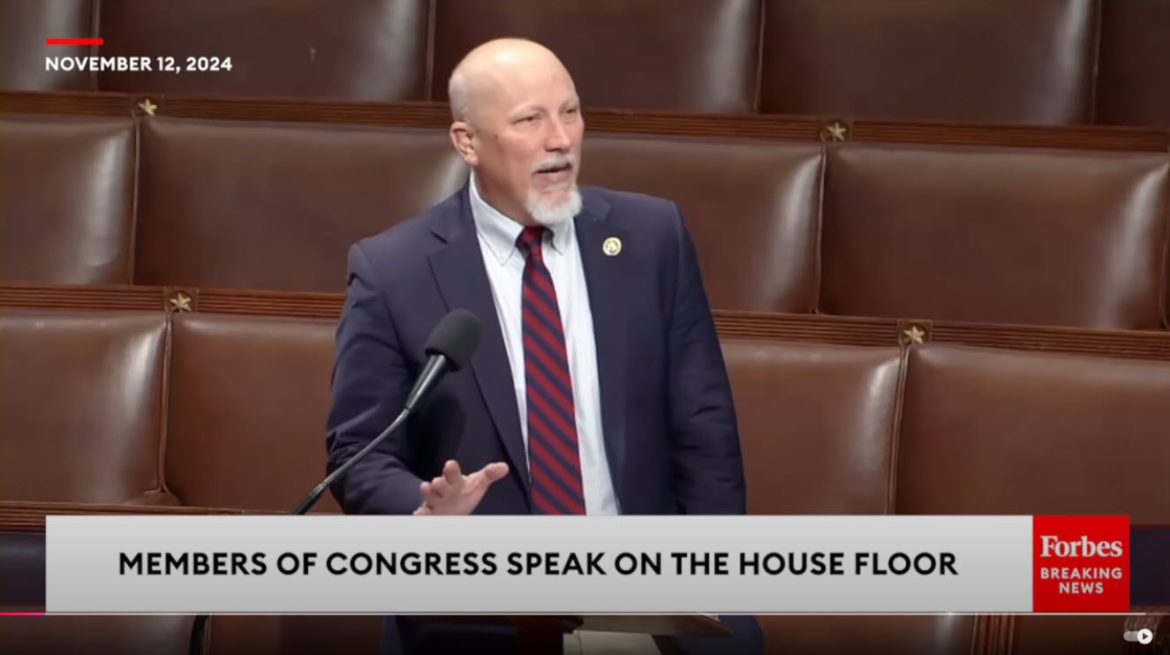Representative Chip Roy (R-TX) voiced strong opposition to HR 82, the Social Security Fairness Act, during a passionate speech on the House floor, arguing that the proposal fails to address systemic issues within Social Security and perpetuates longstanding inefficiencies. Roy instead threw his support behind HR 5342, the Equal Treatment for Public Servants Act, which he claims offers a more equitable solution.
The debate underscores growing tensions within Congress over how to reform Social Security while addressing concerns from public servants and taxpayers.
HR 82: The Controversial Proposal
HR 82, known as the Social Security Fairness Act, seeks to repeal provisions of the Social Security Act that reduce benefits for certain public employees who also receive government pensions, such as teachers, firefighters, and police officers. Advocates argue that the current provisions—namely the Windfall Elimination Provision (WEP) and Government Pension Offset (GPO)—unfairly penalize public servants, reducing their retirement benefits.
Critics of the act, including Rep. Roy, contend that while the proposal may address specific grievances, it fails to tackle the broader financial sustainability challenges facing Social Security.
Roy’s Scathing Critique
During his remarks, Roy described HR 82 as another instance of ineffective policymaking. “We’re doing the same crap we always do,” Roy said bluntly. He criticized the bill for prioritizing short-term fixes over long-term reforms and accused Congress of avoiding difficult conversations about the fiscal future of Social Security.
Roy advocated for HR 5342, the Equal Treatment for Public Servants Act, as a more targeted and responsible approach. This alternative proposal aims to modify the WEP formula to ensure fairer benefit calculations for public employees while maintaining the program’s financial stability.
“HR 5342 provides fairness without mortgaging our children’s future,” Roy argued. “It’s time to stop kicking the can down the road.”
Support and Opposition
HR 82 has garnered bipartisan support from lawmakers who believe the WEP and GPO provisions disproportionately harm public servants. Supporters emphasize the need to honor the contributions of teachers, first responders, and other government employees who face reduced Social Security benefits due to their participation in state or local pension systems.
Rep. Abigail Spanberger (D-VA), a co-sponsor of HR 82, countered Roy’s criticism, stating, “This bill is about fairness. Public servants who dedicate their lives to our communities should not be penalized for receiving the retirement benefits they’ve earned.”
Opponents, however, caution that repealing the WEP and GPO without addressing underlying funding issues could exacerbate Social Security’s financial strain, potentially hastening insolvency.
Broader Implications
The debate reflects broader divisions over how to reform Social Security amid increasing pressure to address the program’s projected funding shortfalls. Economists warn that without significant changes, Social Security’s trust funds could be depleted by the mid-2030s, leading to reduced benefits for millions of retirees.
Roy and other fiscal conservatives argue that piecemeal reforms like HR 82 fail to address these looming challenges. Instead, they advocate for comprehensive measures to modernize Social Security and ensure its solvency for future generations.
What’s Next?
Both HR 82 and HR 5342 face uphill battles as Congress grapples with competing priorities and a divided political landscape. As the debate continues, the stakes remain high for public servants, retirees, and taxpayers who rely on Social Security for financial security.
With passionate voices on both sides, the future of these proposals could set a precedent for how Congress approaches Social Security reform in the years ahead.



